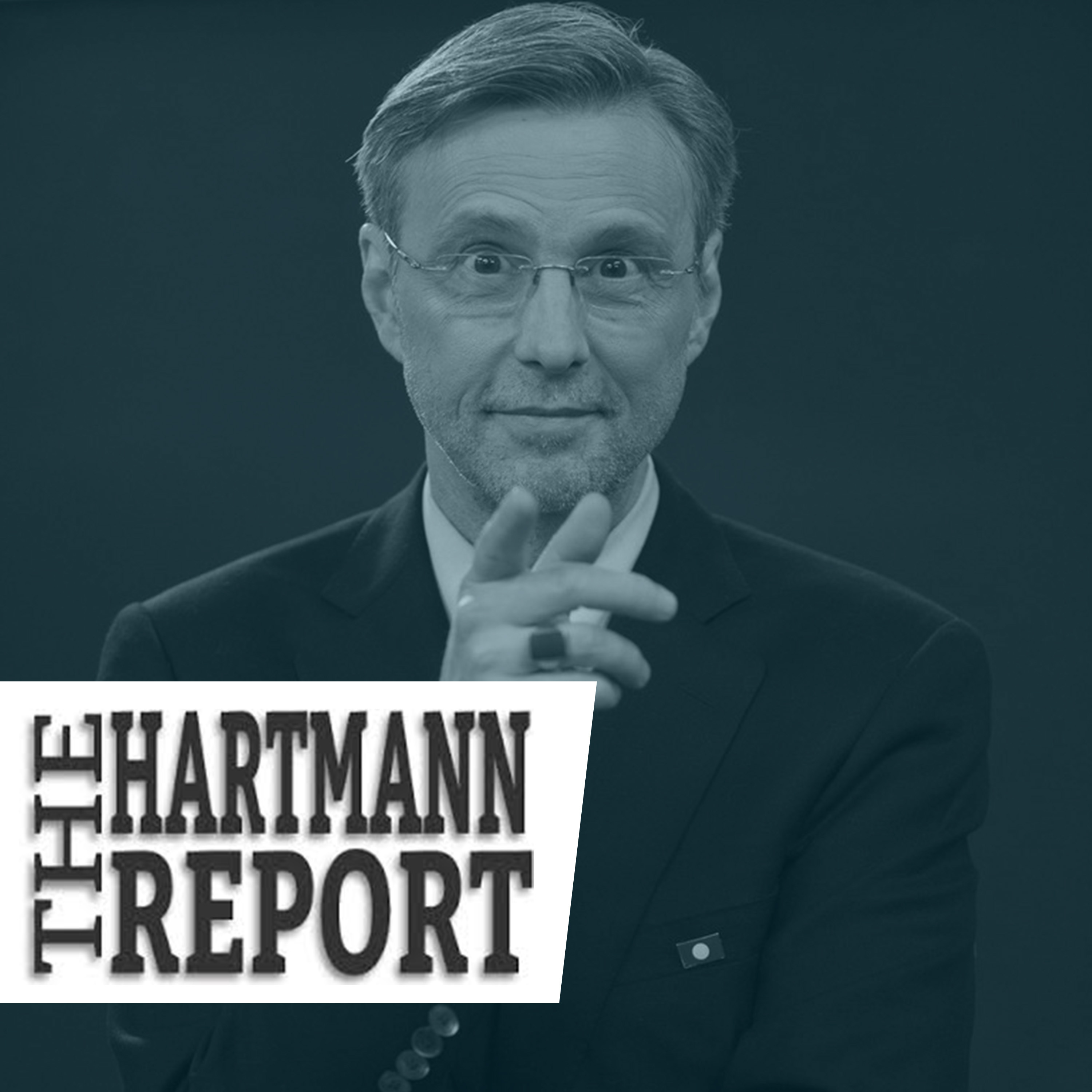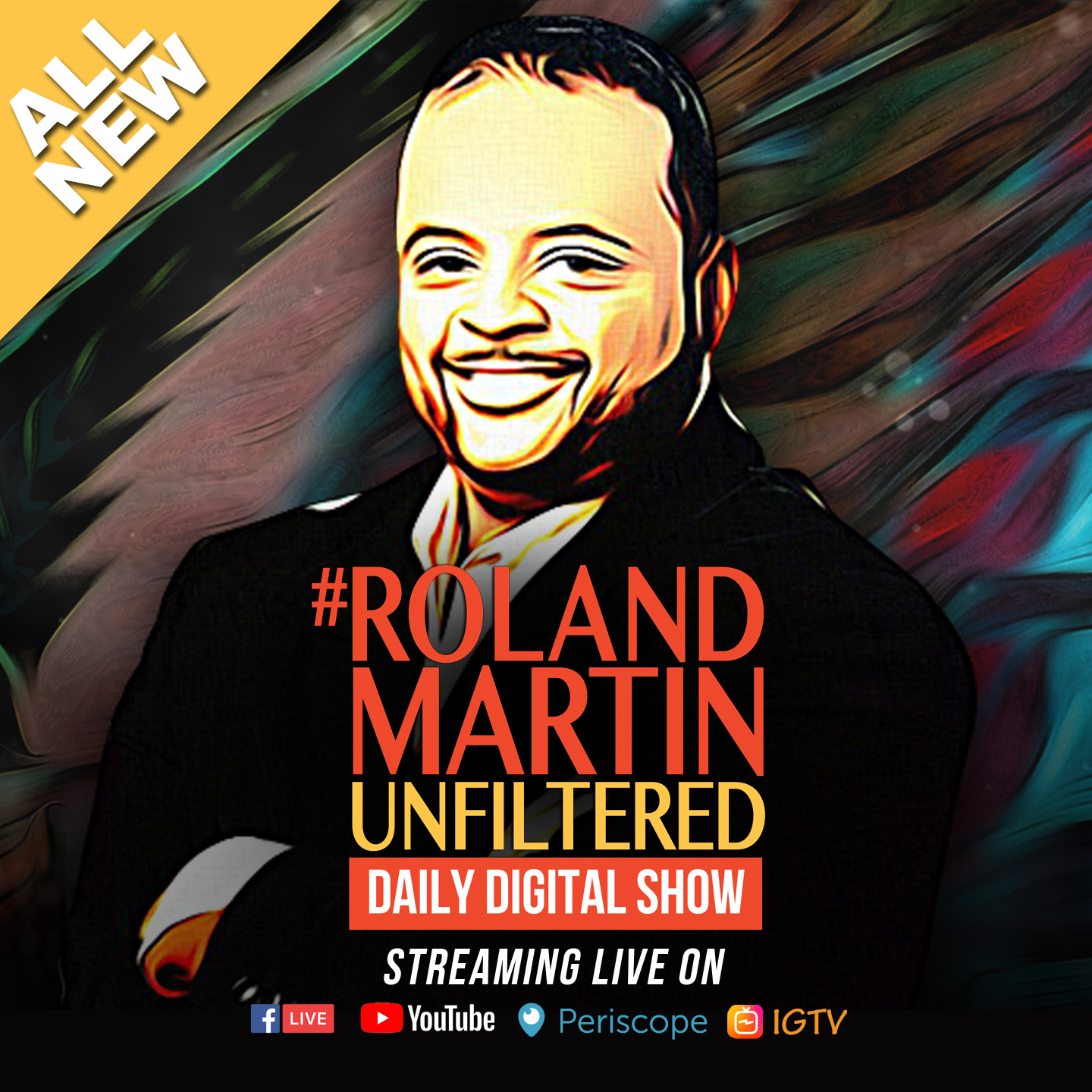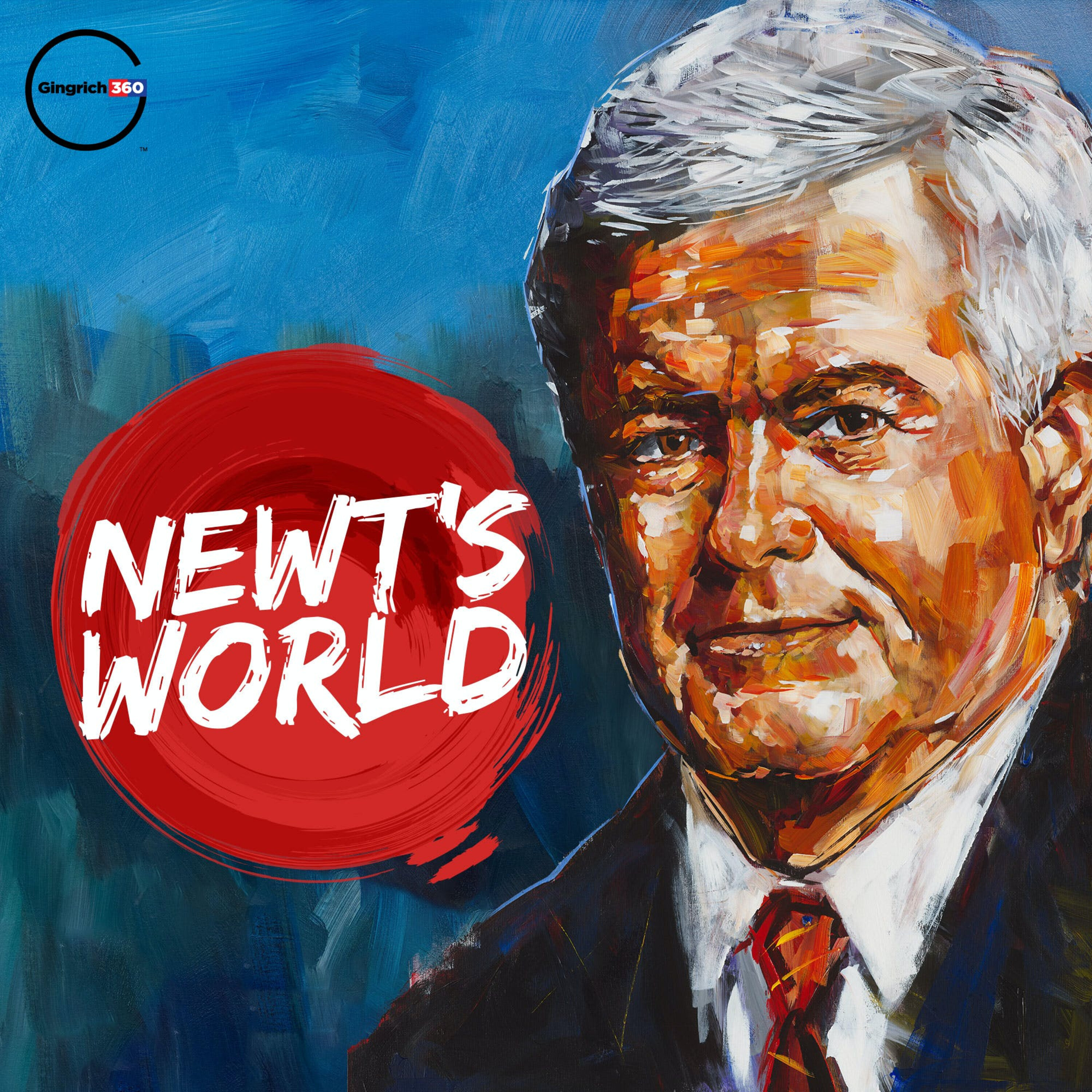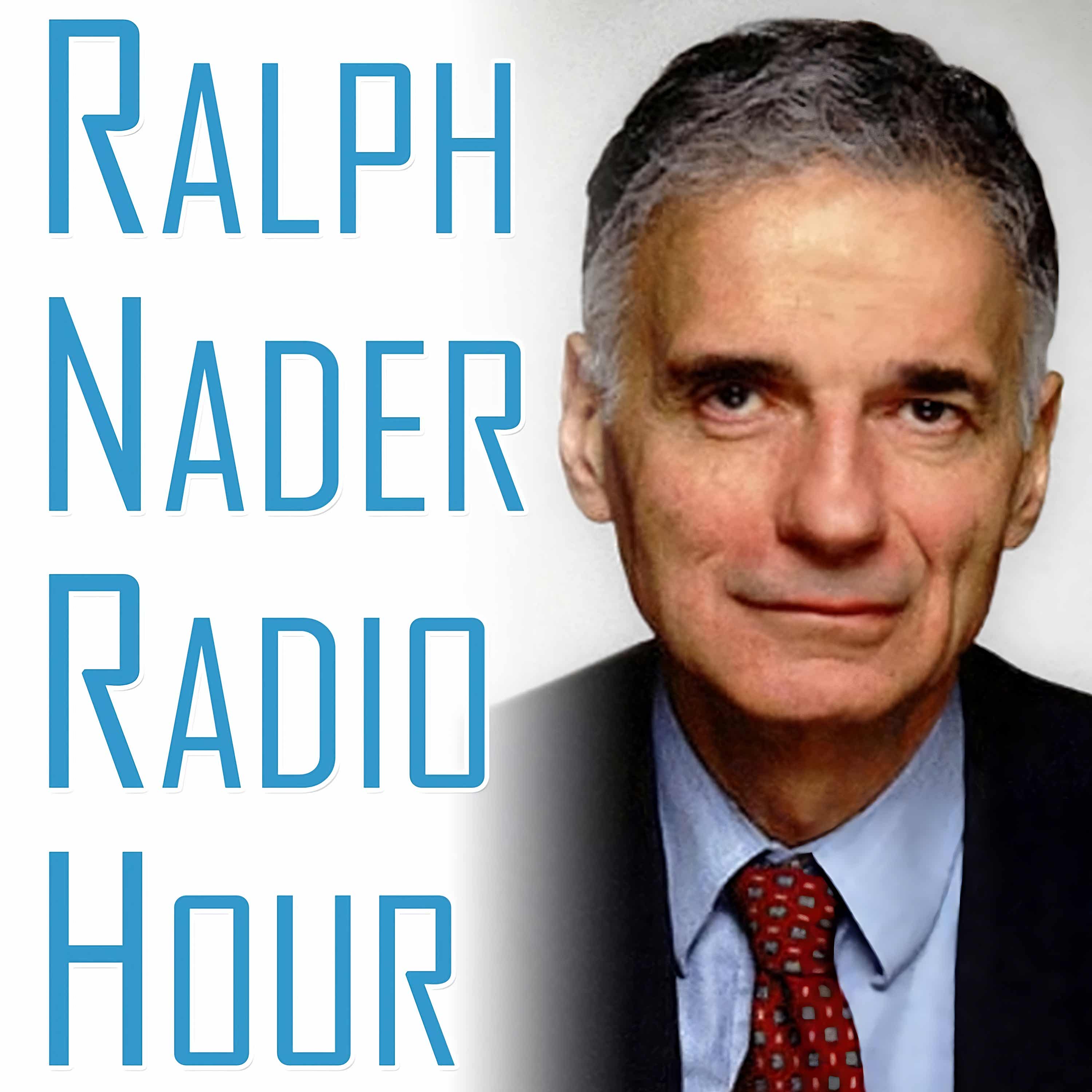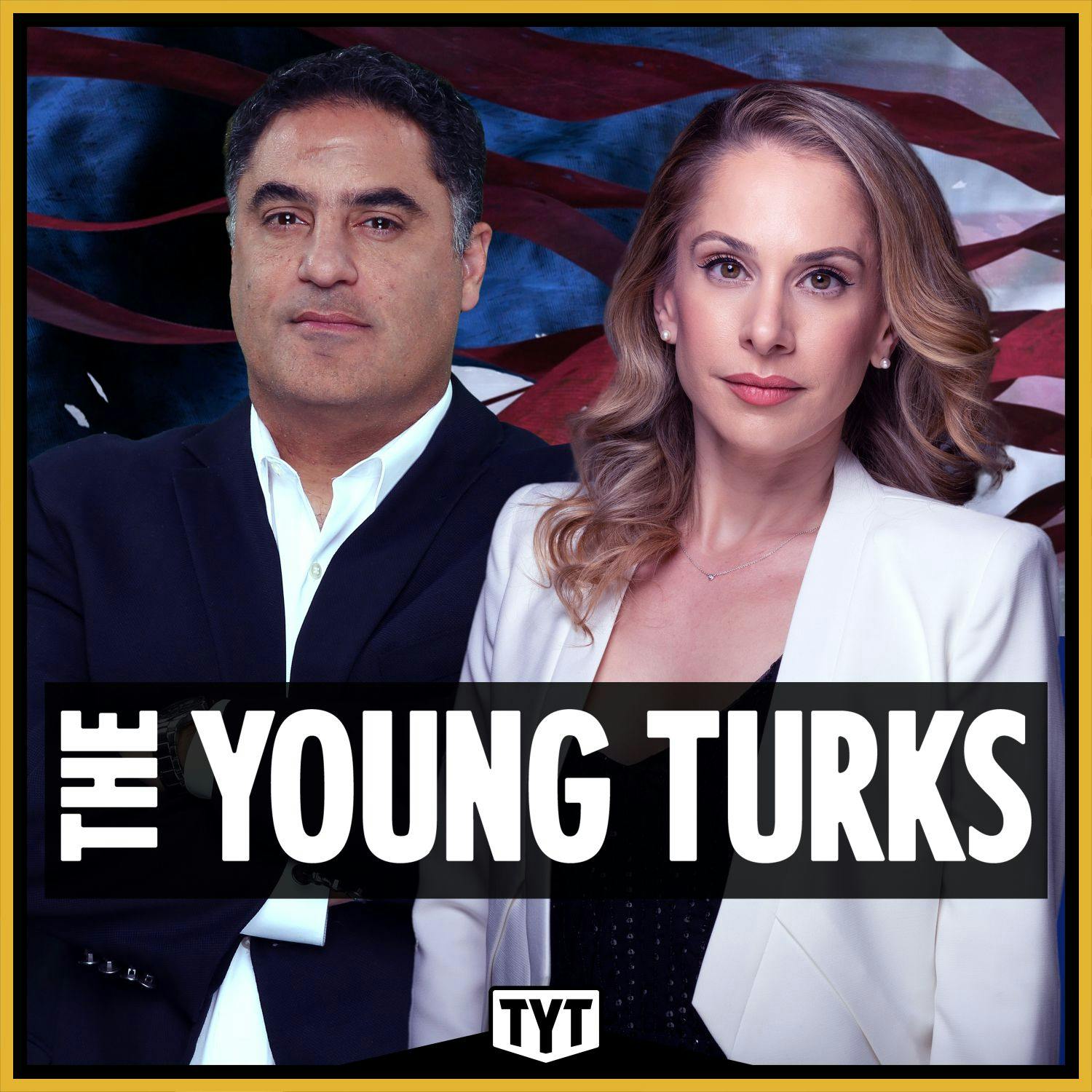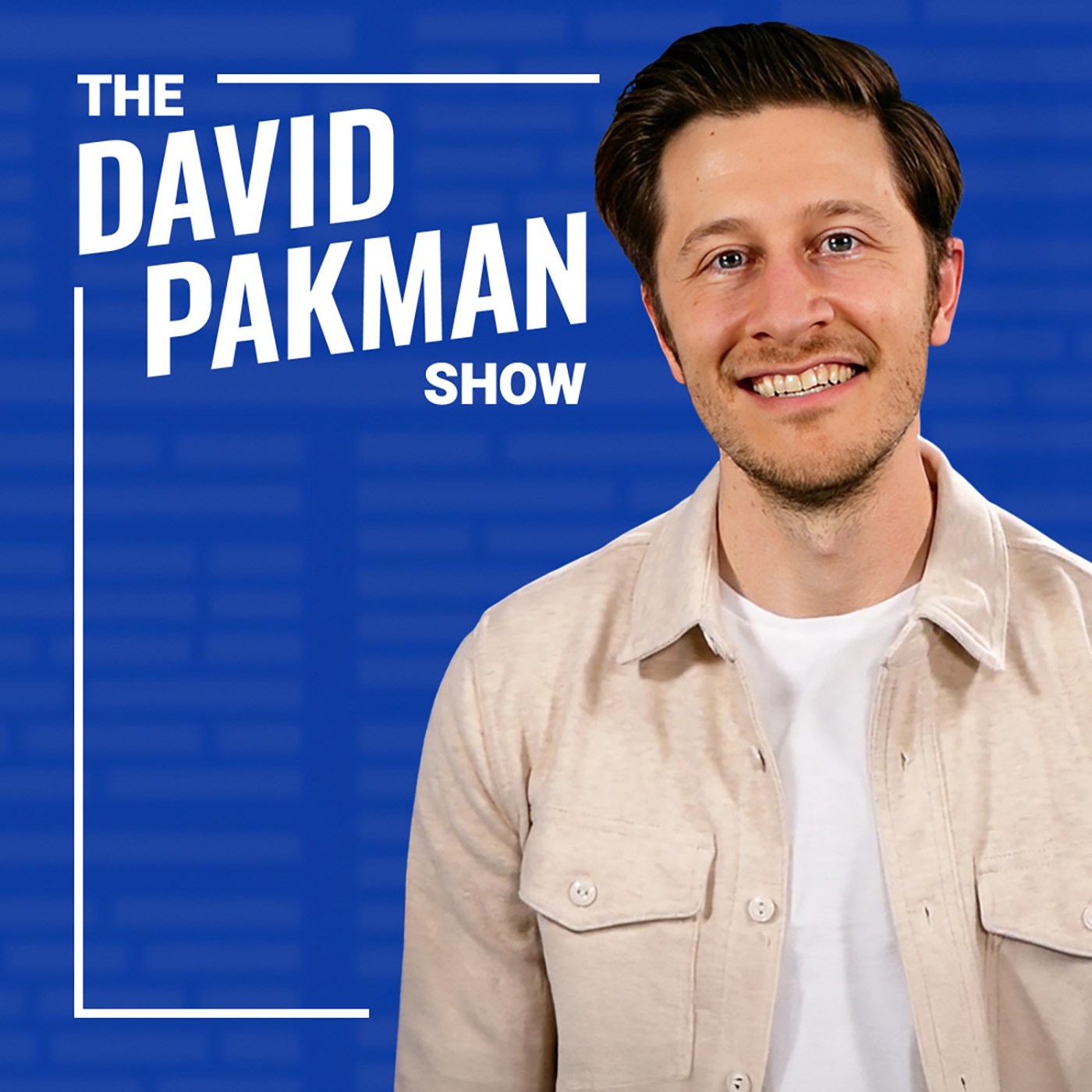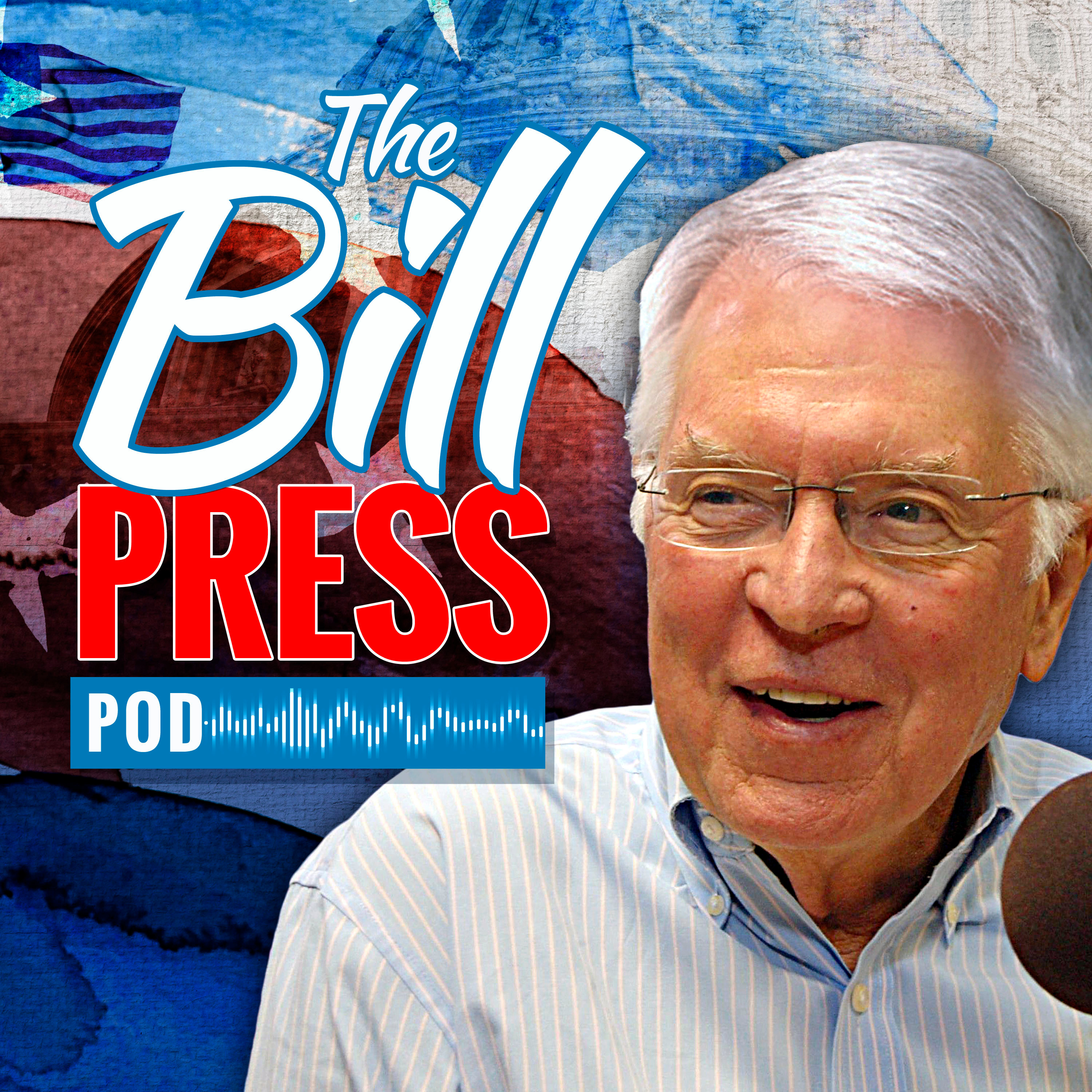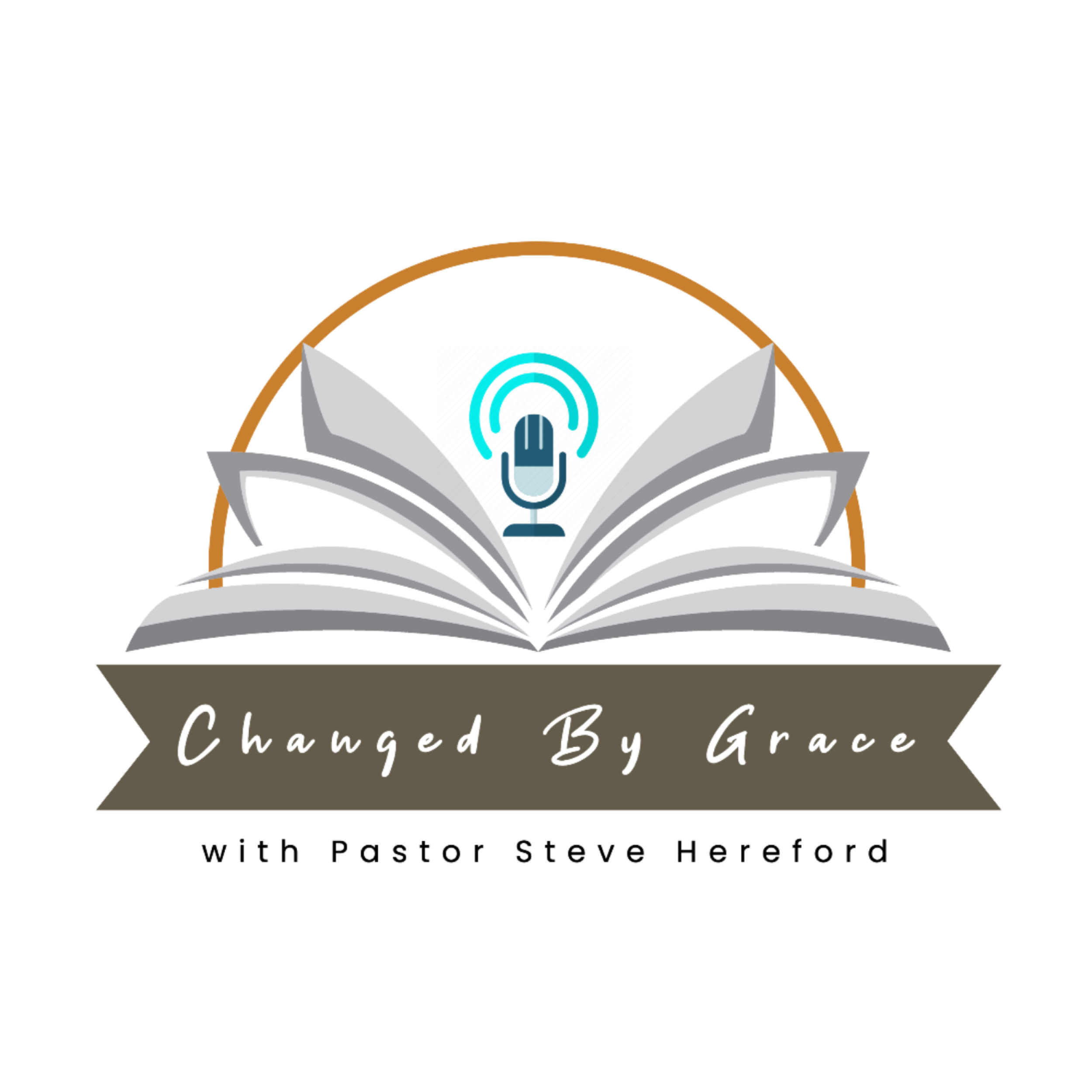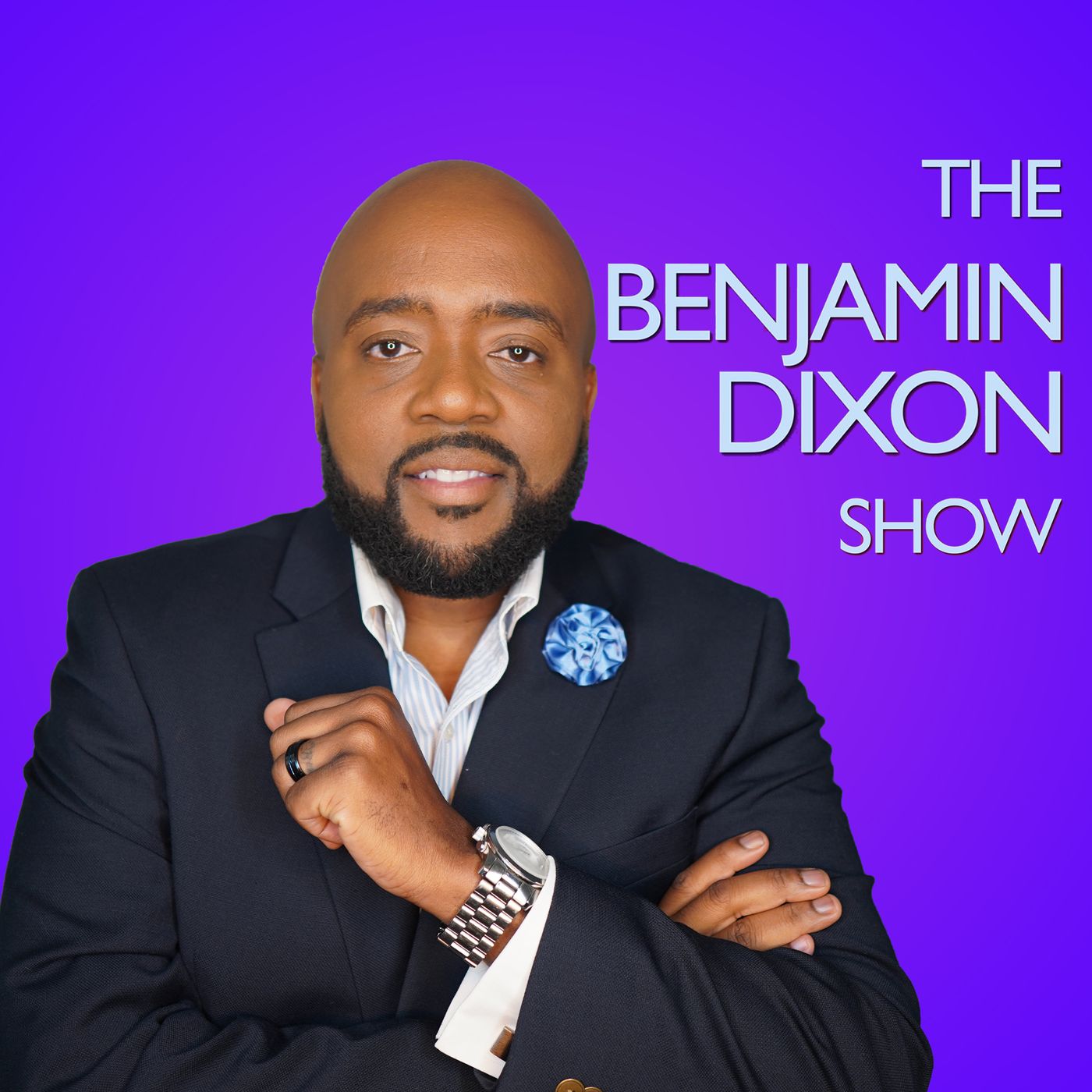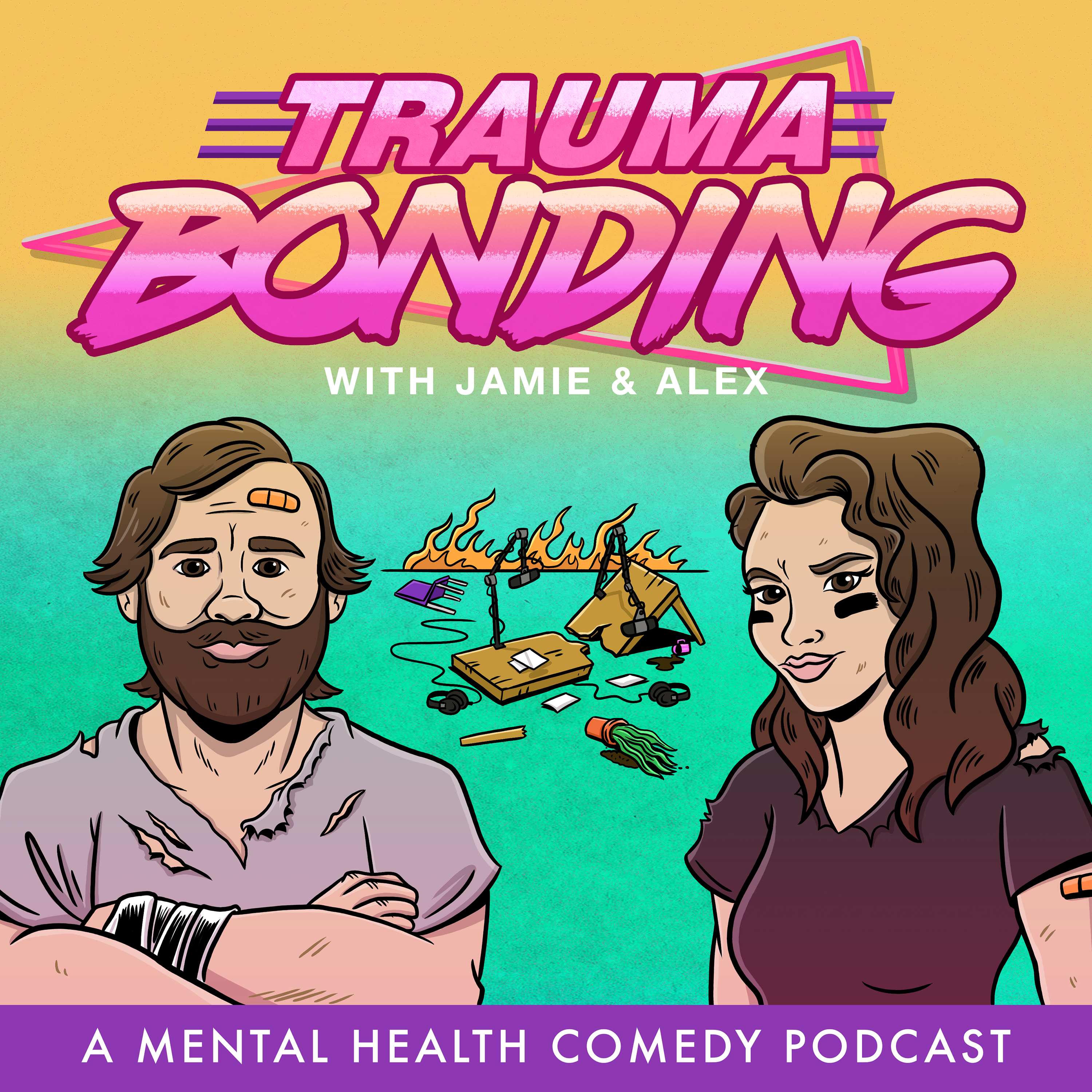
The Darrell McClain show
Independent media that won't reinforce tribalism. We have one Planet; nobody's leaving so let’s reason together!! Darrell McClain is a Military veteran with an abnormal interest in politics, economics, religion, philosophy, science, and literature. He's the author of Faith and the Ballot: A Christian's Guide to Voting, Unity, and Witness in Divided Times. He was born and raised in Jacksonville FL, and went to Edward H white High School,l where he wrestled under Coach Jermy Smith and The Late Brian Gilbert. He was a team wrestling captain, District champion, and an NHSCA All-American in freestyle Wrestling. He received a wrestling scholarship from Waldorf University in Forest City, Iowa. After a short period, he decided he no longer wanted to cut weight, effectively ending his college wrestling journey. Darrell McClain is an Ordained Pastor under the Universal Life Church and is still in good standing as well as a Minister for the American Marrige Ministries . He's a Believer in The Doctrines of Grace, Also Known as Calvinism. He joined the United States Navy in 2008 and was A Master at Arms (military police officer) He was awarded several awards while on active duty, including an expeditionary combat medal, a Global War on Terror medal, a National Defense Medal, a Korean Defense Medal, and multiple Navy achievement medals. While In the Navy, he was also the assistant wrestling coach at Robert E Lee High School. He's a Black Belt in Brazilian Jiu-Jitsu under 6th-degree black belt Gustavo Machado, Darrell Trains At Gustavo Machado Norfolk under the 4th-degree black belt, and Former Marine Professor Mark Sausser. He went to school for psychology at American Military University and for criminal justice at ECPI University.
The Darrell McClain show
Floodwaters and Freedoms: A Nation at the Crossroads
Democracy hangs in the balance as American institutions face unprecedented challenges. In this gripping examination of contemporary crises, Darrell McClain takes listeners through the devastating Camp Mystic flood tragedy in Texas that claimed over 100 lives, revealing both the heroism of everyday Americans and the systemic failures that made this disaster worse than it should have been.
The episode moves beyond partisan responses to tragedy, urging a return to our shared humanity. "Mourning is not a political act," McClain reminds us, pushing back against the reflexive grabbing of talking points and hashtags that too often replaces genuine grief and substantive action.
From Texas floodwaters, the conversation shifts to Justice Ketanji Brown Jackson's emerging role as the Supreme Court's most independent voice. Her blistering dissents on executive power—warning that "our beloved constitutional republic will be no more" if current trends continue—have provoked unprecedented pushback from other justices. McClain contextualizes these judicial battles as fundamental to the separation of powers that protects American democracy.
Most urgently, the episode confronts the administration's threats to prosecute CNN for standard journalism—a precedent that would fundamentally alter press freedom in America. Drawing historical comparisons to previous attempts to silence media critics, McClain warns: "When truth becomes a crime, we all eventually become criminals." This isn't merely about defending one news outlet but preserving the constitutional cornerstone that enables all other freedoms.
Through these interconnected crises, the episode delivers a powerful message: democracy requires more than voting; it demands our constant vigilance, civic courage, and willingness to stand for constitutional principles even when—especially when—doing so isn't politically convenient.
Are you ready to move beyond partisan talking points and engage with the substantive threats facing American democracy? Listen now to understand what's truly at stake and how we might still preserve our constitutional republic for future generations.
Welcome to the Darrell McLean Show. I'm your host, darrell McLean. Independent media that won't reinforce tribalism. We have one planet. Nobody is leaving, so let us reason together. We're coming together on episode 463. Let's get into our episode.
Speaker 1:I woke up this morning with Texas heavy on my heart. Another tragedy, another headline, another moment where we're forced to ask ourselves what exactly are we doing here? Texas is supposed to be a symbol of big skies, big dreams, big courage, but today it's a place marked by loss, by grief and by a familiar question echoing across living rooms since sanctuary pulpits alike why see when? See when tragedy strikes, whether it's a mass shooting, a deadly heat wave, a migrant crisis at the border or environmental disaster, we rush to our corners. We grab our talking points, our hashtags, our politics, but we rarely grab our humanity. We forget that behind every statistic is a mother who will never tuck her child in again, a father who can't walk his daughter down the aisle, a friend who will never hear that laugh one more time.
Speaker 1:The prophets in scripture never hesitated to speak truth to power. They didn't mince words. Amos cried a gallant against injustice at the gates. Micah told us that the Lord requires to act justly, to love mercy and to walk humbly with God. But somehow in modern America, and especially in the hearts of Texas, justice too quickly has become a partisan slogan. Mercy is viewed as weakness and humility has become a partisan slogan. Mercy is viewed as weakness and humility. Well, that's a virtue we traded in for cheap bravado a very long time ago.
Speaker 1:I don't know who needs to hear this today, but mourning is not a political act. Mourning is a deeply human act, and if we can't pause long enough to sit in the ashes with each other, to truly grieve, truly listen, then it doesn't matter how many flags we wave or how many prayers we tweet. We will keep repeating this cycle until our souls go numb. So today I don't have any real policy solutions in my pocket, but I do have a plea Don't look away, don't numb out, don't let tragedy just become another headline. You scroll past on the way to your favorite sports highlight or celebrity gospel. As much as it hurts, sit with it, feel with it and let it move you to action, real, compassionate, collective action, because Texas and all of us deserve more than empty thoughts and prayers. We deserve a future where these tragedies don't keep replaying on an endless loop, and the future that starts this. We decide that each life matters enough to change our hearts and to change our system.
Speaker 1:So let's get into this episode about what happened in Texas this week. So here's it. We have to come today with our heavy hearts because the tragedy that struck in Texas that has left me breathless while I'm grieving with these families and asking questions that I don't have easy answers to. Over a hundred lives were lost this week, with floodwaters ripping through Camp Mystic, a Christian girl's summer camp nestled by Gillip River. In a matter of minutes, what was meant to be a week of worship songs, late night whispers under the stars and joyful summer memories turned into an unspeakable nightmare. Among the victims were young girls just starting to dream, counselors who dedicated their summer to guiding and protecting, and even leaders like the director, dick Eastland, who lost his life trying to save others. It's the kind of story that makes you clutch your children a little tighter and makes you call your loved ones just to hear their voice.
Speaker 1:But beyond the headlines, beyond the numbers, there's something deeper we have to talk about today, because every tragedy, especially one on this scale, it's a mirror and it shows us who we really are. First, we see the raw beauty of humanity Young counselors writing young children's names on their arms, with shoppies so they wouldn't be lost in the chaos. Rescue swimmers diving into raging waters without hesitation, parents driving through the night praying for a miracle. In these moments you see curse that humbles you to your knees. But then there's the other side of that mirror, a side that asks why weren't the proper warning systems in place? Why do we continue to build and gather in flood zones without enough protection? Why do our governments always seem ready to send thoughts and prayers but slow to send resources and reform?
Speaker 1:We talk so much in this country about American exceptionalism, this idea that we are somehow uniquely blessed, set apart, chosen, and yet, time and time again, we fail to protect the very people we claim to cherish the most our children, our future. Isaiah said woe to those who make unjust laws, to those who issue oppressive decrees. Amos told us to let justice roll on like a river, righteousness never failing stream. So this is not enough for us to mourn. We are called to change, we are called to build a society where safety isn't a privilege, but safety becomes a promise. And to those families in Texas we see you, we grieve with you, we stand ready to walk beside you in this valley. You are not alone. To all my listeners, let this not just be another tragic headline we stroll past. Let this be a call to demand action, demand better infrastructure, demand accountability, support those who are rebuilding and grieving and, above all, remember community isn't just about something we talk about in our churches, in our coffee shops or on social media. It's something we live, something we protect and something we choose every single day. And you can give money, give your voice if you can't give money. Share their stories, pray with intention, show up in ways that matter. Let's briefly talk about what we do know.
Speaker 1:A flash flood struck early July 4th near the river at Camp Mystic, a woman's Christian summer camp in Care County, texas. An astonishing amount of rain over 20 inches in just a few hours caused the river to rise roughly to 26 to 29 feet in just 45 minutes, unleashing a wall of water in the dead of night. So far, at least 118 people have died, including 27 campers and counselors at Camp Mystic, with at least 180 people still missing, with at least 180 people still missing. Among the victims are twin sisters, hannah and Rebecca, both eight and beloved counselors, coyle Childress, 18, alongside the director, chris Eastland, who died trying to save campers. Camp videos just hours before the show before show girls dancing, playing, laughing just a chilling contrast to what happened a few minutes later. A Coast Guard rescue swimmer and team counselor who had just started his job it was his first ever mission saved dozens Writing names of campers on his arms, with shoppies for identification. During the rescue mission, director Dick Eastland, in a full dedication, died rushing to aid campers. People have described him as embodying a strong Christian man and a protector.
Speaker 1:Warning systems and the official responses seem to have failed us. Flood warnings were issued days prior, so from July 2nd to the 3rd, but Kerr County lacked a formal early warning system. Some families received nothing before the disaster struck. Texas Governor Abbott has declared a disaster, committed to rescue efforts and special legislative session is in the works to review emergency preparedness view, emergency preparedness, federal response. President Trump and Melania plan to visit and the president signed a major disaster declaration and pause FEMA's scaling rhetoric amidst calls for federal support.
Speaker 1:Why this happens to matter is obviously the scale of loss, with over 100 lives gone, including dozens of children and young women, leaves families, communities and faith congregations shattered, even historically safe places like a Christian summer camp can be catastrophically vulnerable without a robust warning infrastructure. Stories of brave campers, counselors, rescuers and staff like Eastland showcase this sacrificial love that often emerges in disaster. This disaster directly impacts spiritual communities. Circles of prayer, mourning and inspected faiths are intertwined in this response.
Speaker 1:This moment, even though it turned political, almost immediately calls us to a collective response, a collective prayer, collective presence and personful giving as families navigate this profound grief. Communities must start to champion better warning systems, flood mitigation and faster alerts in high-risk zones. We have to remember the lives, keeping alive stories of Hannah, cole, dick and countless others, and this is the only thing we can do in this moment, in honoring both the loss and the love. Like I said before, we don't want this to just become another news cycle. It's a stark reminder that no place is too sacred or secure for tragedy. Yet, amid our sorrow, our faith invites us to respond not with despair but with presence, but with hope, accountability and justice. We remember the loss, we pray with the living and we commit to building systems community, spiritually and civically that refuse to let these catastrophes continue over and over and over again.
Speaker 2:We'll be right back with more and Zach Schoenfeld To hear Justice Ketanji Brown Jackson tell it over again. We'll be right back in the morning of unevenly applying the law, even if it meant standing on her own from the court's other liberal justices. Jackson has had an independent streak since President Biden nominated her to the bench in 2022. But the dynamic has intensified this term, especially as litigation over President Trump's sweeping agenda reached the court. It climaxed with her final dissent of decision season, when Jackson accused her fellow justices of decision season, when Jackson accused her fellow justices of helping Trump threaten the rule of law at a moment they should be hunkering down. It is not difficult to predict how this all ends, jackson wrote. Eventually, executive power will become completely uncontainable and our beloved constitutional republic will be no more. Her stark warning came as Trump's birthright citizenship order split the court on its six to three ideological lines, with all three Democratic-appointed justices dissenting from the decision to limit nationwide injunctions. Jackson bounded farther than her two liberal colleagues, writing in a blistering solo critique that said the court was embracing Trump's apparent request for permission to engage in unlawful behavior. The decision amounts to an existential threat to the rule of law, she said. It was not the first time Jackson's fellow liberal justices left her out in the cold.
Speaker 2:She has been writing solo dissents since her first full term on the bench. Jackson did so again in another case last month when the court revived the energy industry's effort to axe California's stricter car emissions standard. Jackson accused her peers of ruling inequitably. This case gives fodder to the unfortunate perception that moneyed interests enjoy an easier road to relief in this court than ordinary citizens. Jackson wrote Because the court had ample opportunity to avoid that result. I respectfully dissent Rather than join Justice Sonia Sotomayor's dissent that forwent such fiery language. Jackson chose to pen her own dissent that forwent such fiery language. Jackson chose to pen her own. The duo frequently agrees. They were on the same side in 94% of cases this term, according to data from Scott US Blog, more than any other pair, except for Justices Clarence Thomas and Samuel Alito, the court's two leading conservatives.
Speaker 2:Sometimes Sotomayor signs on to Jackson's piercing dissents, including when she last month condemned the court's emergency order allowing the Department of Government Efficiency to access Americans' social security data. The court is thereby unfortunately suggesting that what would be an extraordinary request for everyone else is nothing more than an ordinary day on the docket for this administration. I would proceed without fear or favor, jackson wrote, but it appears there are rhetorical lines the most senior liberal justice will not cross In another case regarding disability claims. Sotomayor signed onto portions of Jackson's dissent but rejected a footnote in which Jackson slammed the majority's textualism as somehow always flexible enough to secure the majority's desired outcome. Pure textualism's refusal to try to understand the text of a statute in the larger context of what Congress sought to achieve turns the interpretive task into a potent weapon for advancing judicial policy preferences. The most junior justice wrote, refusing to remove the footnote from her dissent. Jackson's colleagues do not see it that way. It is your job to do the legal analysis to the best you can. Chief Justice John Roberts told a crowd of lawyers at a judicial conference last weekend, rejecting the notion that his decisions are driven by the real-world consequences. If it leads to some extraordinarily improbable result, then you want to go back and take another look at it, roberts continued. But I do not start from what the result looks like and go backwards. Though Roberts was not referencing Jackson's recent dissents, her willingness to call out her peers has not gone unaddressed.
Speaker 2:Jackson's dissent in the birthright citizenship case earned a rare, merciless smackdown from Justice Amy Coney Barrett, co-signed by the court's conservative majority. Replying to Jackson's remark that everyone from the president on down is bound by law, barrett turned that script into her own punchline. That goes for judges too. The most junior conservative justice clapped back, deriding Jackson's argument as extreme. Barrett said her dissenting opinion ran afoul of centuries of precedent and the Constitution itself. We observe only this Justice. Jackson decries an imperial executive while embracing an imperial judiciary. Barrett wrote the piercing rebuke was a staunch departure from the usually restrained writing of the self-described one jalapeno gal. That is compared to the five jalapeno rhetoric of the late Justice Antonin Scalia. Barrett said the late conservative icon for whom she clerked.
Speaker 2:On today's court it is often Thomas who brings some of the most scathing critiques of Jackson, perhaps most notably when the two took diametrically opposite views of affirmative action. Two years ago, page after page, thomas ripped into Jackson's defense of race-conscious college admissions, accusing her of labeling all blacks as victims. Her desire to do so is unfathomable to me. I cannot deny the great accomplishments of black Americans, including those who succeeded despite long odds. Thomas wrote in a concurring opinion. It is not Thomas's practice to announce his separate opinions from the bench, but that day he said he felt compelled to do so as he read it aloud from the bench for 11 minutes.
Speaker 2:Jackson stared blankly ahead into the courtroom. Jackson's boldness comes across not only in the court's decision-making. At oral arguments this term she spoke 50% more than any other justice. She embraces her openness. She told a crowd in May, while accepting an award named after former President Truman, that she liked to think it was because they both share the same trait Bravery. I am also told that some people think I am courageous for the ways in which I engage. Jackson said.
Speaker 1:If the truth is a crime, then we are all criminals, because silence is what tyranny depends on. Now that President Trump has threatened to prosecute CNN, what happens next will define the role of the press and, I dare say, the soul of the nation. Soul of the nation. History rarely announces itself. It creeps in quietly, cloaked in the language of law and order, national security and patriotism. But every now and then, history screams for us. Last week it screamed. President Donald Trump, now seated once again behind the Resolute Desk, and his Homeland Security Secretary, kristi Noem, have openly threatened CNN with criminal prosecution for reporting on the existence and the use of an app called IceBlock. Now, iceblock alerts undocumented immigrants about the nearby immigrations Enforcement of ICE operations. This app, which is publicly available and the reporting around it likewise rooted in public records, is suddenly being framed as a national security threat.
Speaker 1:Let's be clear about what's happening. About what's happening the President of the United States and his administration are threatening to jail journalists for doing their jobs. This isn't just an authoritarian flirtation. It's a shot across the bow of our American Republic and it should chill every citizen who still believes in a sacred protection of the First Amendment and the role of the press in our constitutional republic. There is a reason. The founders placed freedom of the press at the very very first of its concerns by putting it in the First Amendment, they understood that tyranny doesn't announce itself with tanks in the streets, although the President has brought us that too in DC and Los Angeles. It begins with dissent, silence and truth becomes optional when the government gains the power to determine what is and wasn't acceptable Journalism, our citizens, monitoring of government actions. Democracy doesn't just wobble, it collapses. We have seen this before. In the 1970s, richard Nixon compiled an enemies list, weaponizing the IRS and the FBI against journalists and political opponents. But even Nixon, as infamous as he was, never dared to prosecute a major news network for reporting publicly available facts or proudly announcing criminal investigations of individuals monitoring the police.
Speaker 1:In 1917, woodrow Wilson signed the Espionage Act into law, a piece of legislation later used to imprison dissenters and suppress anti-war journalists during World War I. Senator Bernie Sanders' hero, the democratic socialist eugene debs, was actually thrown into prison for protesting our involvement in world war one, and eugene debs went on to run for president in 1920 from his jail cell. In 1950s, mccarthyist america journalists who didn't toe the anti-communist line were blacklisted, surveilled and driven from their careers. Historians and even high school history class correctly identify Wilson's and McCarthy's excessive as a terrible moment in our past, moments that should never be repeated. Moment in our past, moments that should never be repeated. But now, in 2025, we are revisiting that time with a best a beast entirely a populist authoritarian with an open content for the constitutional constraints, embodied by a cult of personality and empowered by six of his lot of appointed republicans on the supreme court that have told him he is immune and that he can basically openly commit crimes without any fear of prosecution. Combining, combining, this crisis of democracy is a billionaire-owned media ecosystem that no longer even pretends to tell the truth.
Speaker 1:President Donald Trump is not unique in history, but the confluence of power, propaganda and a post-truth politics have embodied is dangerously unprecedented in America. The most terrifying part of this episode when Trump versus CNN is not that Trump is threatening CNN. It's that every other newsroom in America is now taking notice and, unfortunately, some are immediately bending the knee. For example, cbs News president David Ellison, the son of the billionaire MAGA. Larry Ellison reportedly just gave $15 million to a Trump and promised, according to Trump himself, another $15 million in a nationwide free advertisement for the MAGA message.
Speaker 1:When a president targets a media outlet for reporting on a publicly available app, are quoting anonymous officials. The effect isn't just that outlet. It reverberates through every editorial board, every reporter's notebook, every newsroom's budget meeting, because they ask themselves should we cover the story or will we get sued? Will our reporters get subpoenaed? Is it worth the cost, risk or even the hassle? That is a chilling effect in a nation of exactly what authoritarians want. That is a chilling effect in a nation of exactly what authoritarians want. It's exactly what dictators get. They don't need to jail every journalist or even prosecute the opposition politicians. For example, there are only actually around 1,500 political prisoners in Russia, in a country with a population of 143 million. That's all Putin needed to cow the press and his political opposition and the people in the streets into silence. Ask the journalist activists in Mexico, where the threats of violence have silenced entire newspapers. Back to Russia, where one law criminalized the reporting of the word war the word war to describe the Ukrainian invasion and the entire nation's press immediately bent the knee. Or let's go to Hungary, where Viktor Orban turned independent press outlets into into government mouthpieces. It always starts the same exact way, without exceptions Investigations, national security and fake news Sound familiar, so let's talk about what CNN actually reported.
Speaker 1:The so-called Iceblock app was not a secret Pentagon tool. It's publicly downloadable. It informs undocumented immigrants, many of whom have lived and worked in the United States for decades, about where ICE raids might be happening. You know the exact same way. Waze tells drivers where police speed traps are. On internal US government discussions about military options in Iran, again based on information already circulating through DC and partially leaked by officials themselves. It was nothing that would have shocked the Ayatollah, but the president of the United States saw a headline he didn't like, and Noem saw a political opportunity to play tough cop on immigration.
Speaker 1:So now, instead of debating immigration policy, our Middle East strategy, we're talking about jailing journalists and suing news outlets. Let me repeat jailing journalists, not pressuring them, not criticizing them. Prosecuting them, them prosecuting them. Now, here's the thing. All Trump's needs is a few ambitious prosecutors, a distracted electorate and a media too scared or too worried about this and it's the bottom line and they will stop fighting back. That is authoritarian in a designer suit, and it's already here. Right-wing billionaires have already bought up local newspapers and radio stations, converting once-independent media voices into megaphones for mega or right-wing talking points. Citizen journalists on social media. Russian troll farms pair conspiracy theories generated by AI enhanced bots that are amplified by the algorithms.
Speaker 1:The line between what is news and what is propaganda has blurred beyond all recognition. Meanwhile, genuine investigation reports, those who dig into government corruption, environmental devastation, police abuse, are under constant threat financially, legally and even sometimes physically. Just ask the journalists shot or arrested during the Black Lives Matter protests. Are the ones surveilled by ICE for uncovering abuses in detention centers? Are the ones like Jeremy Scahill, glenn Greenwald, edward Snowden, who were run out of town sued, still under lawsuit for releasing information about what the government's military industrial complex or spy networks are doing? This isn't just about CNN. It's about where the truth still has a place in the conversation in America.
Speaker 1:If this process threat succeeds, whether through actual charges or through the intimidation it provokes, the consequences will be draconian. Whistleblowers will go silent. Why leak evidence of government wrongdoing if the journalists who published it are dragged into court and forced to reveal their sources? Investigative journalism will wither. Why invest time and money into reporting if the legal risk outweighs losing your job or going to prison? Civic ignorance will grow. Without trusted sources of information, citizens turn to whatever confirms their bias YouTube grifters, twitter trolls or state-run propaganda. Corruption will thrive, from corporate polluters to racist sheriffs to mass agents of the state. The worst among us will flourish in darkness. This is how democracies die not with a bang, but with a threat and a few individuals, a few organizations destroyed to make an example.
Speaker 1:So what do we do? First, we demand that every member of Congress, democrats and Republicans, publicly condemn this threat against news organizations. Silence becomes complicity. Second, we urge our courts to defend the first amendment with vigor. It demands the press must remain free from government intimidation or it is not truly free. Third, we have to start to support independent media, independent journalism, with our wallets subscribe, donate, share their stories. The corporate media will not save you. We, the people, will have to do that ourselves. Fourth, we organize not just around press freedom, but around every interconnected pillar of democracy under threat Voting rights, judicial integrity, environmental justice and, yes, immigration reform rooted in compassion and not cruelty. And finally, we remember the founders gave us a roadmap. We, the people, are the ultimate check on tyranny, but only if we show up, only if we speak out July 2nd 2025, only if we speak out July 2nd 2025, when Trump made the threat will go down as a dark day in American history, unless we choose to make it a turning point.
Speaker 1:Trump's assault on the press is not a sideshow. It's not a distraction, it's the whole game. Control the narrative and you control the country. Silence, dissent and you can do anything. The American experiment survives only as long as we defend the institutions that make it possible, and a free press is not just one of those institutions, it's the first line of defense. So, even though I don't personally watch the network today, we have to stand with CNN. Tomorrow it might be ProPublica, the next day it could be Mother Jones, the Nation, csnbc, abc, msnbc, fox News or your local paper, or even my new Substack newsletter. When the truth becomes a crime, we all will eventually become criminals, and then in that case, I proudly say we have to print the truth anyway.
Speaker 3:Would you declassify the Epstein files?
Speaker 5:Yeah, yeah, I would All right. I guess I would Release the list.
Speaker 6:Seriously, we need to release the Epstein list. That is an important thing. Will you work with me on this issue so we know who worked with Jeffrey Epstein in building these sex trafficking rings?
Speaker 3:Absolutely, Senator. Child sex trafficking has no place in the United States of America and I will do everything, if confirmed as FBI director, to make sure the American public knows the full weight of what happened in the past and how we are going to countermand missing children and exploited children going pure.
Speaker 6:Just last week, the president's excellent pick for FBI director, Kash Patel, vowed to work with me in releasing the Epstein records and breaking apart the trafficking rings that harm countless women and children across our country.
Speaker 5:The DOJ may be releasing the list of Jeffrey Epstein's clients. Will that really happen? It's sitting on my desk right now to review that's been a directive by President Trump. I'm reviewing that. All this evidence is sitting in the Southern District of New York so, based on that, I gave them the deadline. Friday at 8, a truckload of evidence arrived. It's now in the possession of the FBI. Cash is going to get me and himself really a detailed report as to why all these documents and evidence have been withheld. It's a new administration and everything's going to come out to the public. The public has a right to know. Americans have a right to know.
Speaker 6:I know the attorney general has committed to releasing those files. I would defer you to the Department of Justice on her timeline. But when she's made a promise in the past she has kept it and I'm certain that she will in this case as well. Welcome back everybody 20 minutes to the top of the hour. Case closed. The Justice Department revealing Jeffrey Epstein died by suicide and insists there is no secret client list out there.
Speaker 1:So you heard it there. After months of the Donald Trump and his top allies in the administration and Congress promising to release the Epstein files, the president's Department of Justice, led by former lobbyist Pam Bondi, now says that the child sex offender Jeffrey Epstein had no client list and they ruled his death a suicide. Now look, for years now, we have heard so many people talking about this list, the flight logs, many people talking about this list, the flight logs. We've heard the president himself talk about the fact that, well, he maybe didn't want to release information because there was some phony stuff in there or that there were. There could have been people, there were names in there that were not. Uh, let's just say it may not be fair. There were people saying that they have to take a good careful look at it because you have to protect the identity of the victims, etc. Etc. Etc.
Speaker 1:I wrote a piece in Substant about this because this has literally been a major issue in the country. They were saying even the FBI director and the deputy director listed Bill Gates by name. For years, you've heard of this satanic pedophile ring run in Washington DC by Democrats. The Democrats get in power. No names come out on the list. The Republicans get in power after saying it is a list full of your very powerful Democrats. Not one name comes out. Nobody on the list. There is no list of your very powerful Democrats. Not one name comes out. Nobody on the list. There is no list. There are no files, there are no videos. So you have to ask yourself some very, very profound questions and maybe one day I'm going to go through the questions of tell me why there were so many intelligence officials at Jeffrey Epstein's funerals. Tell me where Jeffrey Epstein's money came from.
Speaker 1:This is in the show, but the piece I wrote in Substack the utter absurdity of the Epstein no list, no murder narrative. Here we go again, dear reader, summoned into a surreal circus tent where the troop is bent like a cheap spoon at a psychic fair. The Department of Justice, that illustrious institution famed for its impeachable record of transparency, would have us believe that there is no Jeffrey Epstein client list. Furthermore, they insist he wasn't murdered. Why not go further and announce that pigs can fly, that Orwell wrote the Hungry Caterpillar and that gravity is merely an opinion?
Speaker 1:Epstein case stands as a monument to the human capacity for self-deception. That was not just another tabloid tragedy, tragedy. It is a rebuke cube global power, sex trafficking and a money of combination guaranteed to attract the worst instincts of the ruling class. To watch the official narrative unfold is to remind us all painfully that the public is not only lied to but expected to thank their abusers for the privilege. We live in an era where every click, swipe and Google search is archived in some dystopian digital tomb. Yet we are told that Epstein's Little Black Book, reportedly veritable social directory of the world's Rich and Powerful, simply does not exist in any actual form. How delightful. Next, they'll tell us that his island was a quiet monastery for chess retreats. The names of princes, presidents, tech titans, hollywood morgals swirl around Epstein's memory like a fetid cloud, and yet, miraculously, not a single verifiable incident emerges. Such vanishing acts would make David Copperfield weep with envy. Perhaps these clients possess an invisibility cloak on loan from Hogwarts School of Witchcraft and Witchery?
Speaker 1:Once upon a time, journalists prided themselves on speaking truth to power. Today they resemble well-fed poodles, grateful for scraps from their corporate masters. From their corporate masters. One might think that child sex trafficking ring implicating global elites would generate wall-to-wall coverage. Instead, we get carefully manicured headlines and hush-hush settlements. The public left drooling before celebrity trials and TikTok trends never demands more. A high-profile prisoner, arguably the most notorious in the country, somehow manages to hang himself while under constant watch. Meanwhile, guards fall asleep, cameras malfunction and logs vanish. If one wrote this as a crime novel editors would scoff and send it back because it was too implausible. Medical examiners found injuries more consistent with homicidal strangulation. Yet the narrative spun faster than a derailed journal. In December, beocratic mouthpieces declared it a suicide, presumably to keep the public docile and the donor dinners undisturbed. Epstein's cell cameras failed at the moment of cosmic convenience. Guards, apparently inspired by Rip Van Winkle, took unscheduled naps. Here lies an insult so brazen that it becomes almost comedic, the dark kind of comedy that leaves one reaching for a whiskey bottle.
Speaker 1:The Department of Justice is supposed to be a bulwark against corruption. Instead, it acts like a sorcerer's apprentice, tirelessly conquering illusions to protect its betters. Tirelessly conquering illusions to protect its betters. In a society where money and influence dictate outcomes, we mustn't be shocked when the watchdog turns into a lapdog. To accept these official lines require mental gymnastics that will put Olympic athletes to shame.
Speaker 1:A public eager to resume Netflix marathons Prefers easy lies over hard truths. The very idea that our readers and our leaders might be irredeemably corrupt Is too frightening, so we choose the comforting fiction. Those who parted on Epstein's jet, those who logged and lounged in his island, literally known as Pedophile Island, have every reason to ensure the truth stays buried deeper than the Egyptian pharaoh. Their interests are global, their power transcendent. They are the very architects of our moral ruin. A public armed with facts might ask uncomfortable questions. They might even heaven forbid demand accountability. Far easier to drown them in distractions, celebrity gossip, partisan bickering and neurotic glow of social media. In a just society, the press would be the dagger aimed at the heart of power. Instead, it is a shield protecting the powerful from consequences. Those who dare to dig deeper, like Julia K Brown, stand as a rare exception in a field otherwise cloaked with moral pygmies.
Speaker 1:In the end, the Department of Justice narrative is not merely a lie. It's an insult to anyone capable of rational thought. The Epstein saga is a mirror held up to our collective cowardice and to our intellectual laziness. We are asked not to merely disbelieve. We are asked to disbelieve our eyes, but to lobotomize our sense of outrage.
Speaker 1:As the late Christopher Hitchens once said, the essence of the independent mind lies in not what it thinks, but how it thinks. Let us honor that spirit by demanding answers, reject facile explanations. Above all, refuse to let the powerful whitewash their own absolution. We're going to get into the blasphemy of the intellectual past and we'll see you on the next episode. I wrote a sub stack yesterday called Bring Us Vidal, bring Us Buckley, the iconic clash that's shaping intellectual debates. I'm going to go to a clip from Gore Vidal versus William F Buckley in the Democratic National Convention debate of 1968. This is not going to be the clash that became famous, but I want you to hear the intellectual rigor between the father of modern conservatism and the father of modern liberalism Gore Vidal versus William F Buckley. See you on the next episode.
Speaker 4:The main source of contention on the floor of the convention tonight is the Vietnam plank of the newly published Democratic platform. I would like to ask our guest commentators if they can find any serious differences between what the Republicans said about Vietnam and what the Democrats say about it. To my mind, I see very little difference. It To my mind, I see very little difference. Our guests are the playwright, gord Vidal, a Democrat, a former candidate for Congress from New York State, and William Buckley, editor and a former candidate for mayor of New York City. Mr Buckley, will you begin? I think that the important difference of Mr Smith is not in the planks, as it were, finally written, but in the effort that went into their composition. The Democrats a great many of them, are clearly displeased with the plank insofar as it doesn't call immediately for an unconditional end in bombing. We know that Mr McGovern and Mr McCarthy joined forces to demand nothing less than that the unconditional end of bombing. There were no equivalent forces in the Republican Party, so that, although they ended up saying roughly the same thing, one is entitled to suppose that, in the case of the Republicans, this truly represents the settlement of the overwhelming majority of them, which is not the case. Concerning the Democrats, I think that's well observed. There's a definite split here tonight. I personally favored, as many people did, the McCarthy-McGovern plank. I was just told the latest hot rumor here at the convention hall that the plaque was given to Lyndon B Johnson himself, who rewrote it and sent it back, and that is the one that they are now celebrating down on the floor. We were just given bits and pieces of this platform and my favorite little bit here is we strongly support the Paris talks and applaud the initiative of President Johnson which brought North Vietnam to the peace table. Of course it was Senator McCarthy in New Hampshire and the enormous movement of a great many people in the United States that caused our leader to make that diplomatic gesture. So I would say that the difference between the two platforms is, as Mr Buckley suggests the Republicans are pretty united in being not only on the one hand hawkish, but on the other hand they seem to feel that they're open for negotiation, trying to relive, I suppose, the days of the Korean settlement by General Eisenhower, who talked very tough in the campaign and then, of course, made a peace with Korea. I suspect that may well be the nixon plan.
Speaker 4:Meanwhile, a very divided democratic party here tonight. What can the republicans do that the democrats can't? If nixon is elected, mr buckley? Well, if, if nixon is elected, it seems to mean that the strategic seriousness of our anti-communist position there, that is to say, that he won't be hampered by a divided party, some of which, perhaps even the majority of which, is bitterly opposed, as Mr Vidal quite correctly suggests, to this policy.
Speaker 4:I do think, though, that Mr Vidal's diagnosis is insufficient, primarily for the reason that he doesn't take into account extrinsic circumstances. For instance, eisenhower's piece on Korea may very well, as Democratic Chairman Paul Butler pointed out at the time, have also had something to do with the death of Stalin, which conveniently took place two or three months after Eisenhower's election. But also, one has to bear in mind that there have been such sentimentalities as calling for a coalition government, as calling for sending blood to the Viet Cong, all that kind of business, which have considerably hampered the negotiations which might otherwise have taken place more speedily, considerably hampered the negotiations which might otherwise have taken place more speedily. Well, I think Mr Buckley has given us a preview of what we will hear from the Republicans on this subject. I'd like to introduce a note that absolutely nobody has so far in the Vietnam debate, and that is that I happen to favor a sort of diplomacy in the grand old style and I'm sure Mr Buckley will agree with me, since he too is a lover of the Congress of Vienna and Metternich policy, that we should, since Ho Chi Minh is the enemy of Mao Tse Tung, therefore we should support Ho Chi Minh. Mao Tse Tung is the enemy of the Kremlin, therefore, in certain cases, we should support him, and the Kremlin is, of course, the enemy of Mao Tse Tung, and we should support them.
Speaker 4:Now, this is grand politics, this is not ideological.
Speaker 4:It's not as interesting as the holy war, as the fascinating war that we must, we are the forces of light and we must destroy all of the government.
Speaker 4:But it has always been traditional in the conduct of foreign policy, until the pietisms of John Foster Dulles, who really did believe, at least as far as we can tell, that we were indeed the forces of light and they were night that we began forcing our way into the world and forever setting up this pietistic view that governments that we disapproved of should be dealt with harshly. So I'm simply saying, to the extent that the leader of North Vietnam is no friend of China. This is not a monolithic conspiracy. We should support him and, by the same token, mao Zedong, and again in this Viennese congressional circle. Mr Buckley, would you like to add to that? Well, mr Dowell's suggestion that perhaps it would be in our interest to support Ho Chi Minh suggests perhaps also that, as a matter of testamentary integrity, I reveal a concrete proposal to that end, contained in a letter sent to me by Senator Kennedy about six months ago, the PS of which was I have changed my platform for 1968 from let's give blood to the Viet Cong to let's give Gore Vidal to the Viet Cong.
Speaker 3:May.
Speaker 4:I see that really. I think, however, that would be immoderate notion that Mr Vidal's idea of how to prosecute the whole situation out there, quite apart from the fact of a congruence of general policy, is marred by his sort of strange fantasies concerning the realisms of politics. I must say I'm looking at this. What a very curious handwriting. It also slants up a sign of a manic depressive. Did you find out about Senator Kennedy? I did see that. Whether you forged it or not, I don't know, and I will have to have my handwriting experts, the graphologists will have to look at it. I put nothing beyond you, not since the Dreyfus case, and we had such evidence brought into court. But it's very, very amusing and has nothing to do with the case. The fact that he was writing you letters makes me terribly suspicious of him as a presidential candidate. I will say that I'm not talking about him as a candidate. This is Senator Bobby Harris.
Speaker 4:Yes, I realize I recognize the handwriting. He makes you suspicious. It makes me very suspicious of what he might have been like as president. But to get back to the plank, it's been fun inspecting your correspondence, but what matters here is that we have, in a word, lost the war Clank while we've. It's been fun inspecting your correspondence, but what matters here is that we have, in a word, lost the war, and I think that that was really the impression that the McCarthy-McGovern people have been trying to give the country that we must get out of this. This cost us $100 billion. This cost us 25,000 dead. It has cost us something like 90% of the casualties are civilians.
Speaker 4:So when they accuse us of genocide, they are not without point. Now wait a minute. We have nothing to gain by this war. Now wait a minute. The activity of the United States in North Vietnam cannot be categorized as genocide by anyone who doesn't accept the postulates of the Communist Party, their postulates being, of course, that we are interested in killing people for the sake of killing people, the distinction being how many people is it necessary to kill in order to pursue a perfectly legitimate military mission, a distinction that has been honored during the past 1,000 years. But we have not lost the war in Vietnam. What we have lost is an opportunity to press that war with such weapons as are especially at our disposal. And the reason we haven't is because we have proceeded schizophrenically make love to the communists this side of the hemisphere, hate them and kill them. This side of the hemisphere and this doesn't know.
Speaker 3:What do you think?
Speaker 4:would you favor just an all-out war on communism, using nuclear weapons, as you have in the past? Uh, on the chinese, uh, nuclear capacity? Yes, indeed, you and something, a marvelous moment, a blow for peace. You came out. You said, quote, to give a two-hour notice to the red chinese that we intend to destroy these nuclear facilities and so give the civilian, military and scientific population a chance to evacuate the plants, which we then proceed, pure and simple, to blow up. This is.
Speaker 3:The great statesman said that is an act of war. Why with nuclear?
Speaker 4:weapons. I never said nuclear weapons, I blew them up with poison ivy. Of all I'm concerned.
Speaker 3:The point is oh well, what is the difference?
Speaker 4:well, it is an act of war. It was an act of war, mr, to drop bombs on another country. You an act of war. You want to change what you finished saying a moment ago? I will welcome any change at any point in here. But you said a moment ago that I favored nuclear bombing in Red China. For the record, I did not, no. But when you said bombing, explain that I favored, alongside a number of very serious military strategists, a preemptive strike against the nuclear facilities of Red Shire and you expect really to be taken seriously A position which was explored by President John F Kennedy in the fall of 1963.
Speaker 4:And should be thought of by all serious people who not only are against the nuclear bomb in the cafe society, but you are trying to do something about it. If the bad guys have got the nuclear bomb we don't want that to it.
Speaker 4:You're both much better when you don't talk at the same time. Could we take turns? Yes, well, I would like to just pick up. We'll just take that point. I would like to pick up that point. You did indeed want to drop bombs on China, which is a foreign country of enormous size. It is no business of ours, I should think, to begin a Pearl Harbor, give them a Pearl Harbor.
Speaker 4:You have also advocated the invasion of Cuba and what you call the immediate enactment of the Monroe Doctrine, something I suspect you have never read, because the Monroe Doctrine ceased to exist, in fact, since 1917. Monroe Doctrine, for your information, happened to be dependent upon did your foreign powers. Foreign powers, the united states, in this hemisphere were not to be allowed, but by the same token, we would maintain ourselves outside european affairs. We abrogated that by going to the first world war. So an effective monroe doctrine does not exist. This is our case. It is laborious job to straighten out history after you've had a couple of sentences ago at it. The distinction was that we would not go to Europe except at the invitation of Europe. If you will give me the name of one country in Europe where we are without the invitation of the local government, then I will say that we have violated the equivalent of the Monroe Doctrine.
Speaker 3:But the Monroe Doctrine is perfectly clear. How do we get out of the war in Vietnam, the last few?
Speaker 4:have not read it. The is about the plank in Vietnam. How do we get out? Have we really been beaten? The answer is that we have not been beaten, mr Smith. The answer is that we are negotiating in Paris at this moment because the enemy feels the pressure of a four-, five-year effort by the United States and South Vietnam and certain of its Asian allies, by the United States and South Vietnam and certain of its Asian allies. It's not there simply because Senator McCarthy got 43,000 votes in New Hampshire. This isn't the way Tai Phong works, hanoi works. We can, of course, win the war, but it's going to take our concerted effort and it's going to take the kind of







